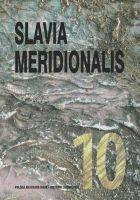Jezikovno in nejezikovno izražanje v pedagoškem pristopu Reggio Emilia
Language and non-language expression in Reggio Emilia pedagogical approach
Author(s): Darija SkubicSubject(s): Language and Literature Studies
Published by: Instytut Slawistyki Polskiej Akademii Nauk
Keywords: Reggio Emilia; pedagogical approach; language and non-language strategies; Slovene as a second/foreign language
Summary/Abstract: In the first part of the article the author describes the importance of language awareness and non-language expression in the pre-school period. The author points out the importance of the usage of all the senses (visual, aural, kinethestic etc.), space and time, and picture images in all 100 languages which are not current only in Reggio Emilia pedagogical approach but also successfully implemented in the Slovenian Preschool Curriculum. All these elements are part of communicative skills (i.e. speaking, listening, writing and reading) and are prerequisites for developing themes (describing, narrating, explaining, argumenting). In addition, the author mentions questioning strategies as one of the most important factors in developing children’s thaughts. She continues with the Slovene language as a second/foreign language which has become an unavoidable and valuable constant in our globally influenced life. The above mentioned elements have been included in the research study which are discussed in the second part of the article. In the conclusion the author discusses the research findings and some other considerations which may lead to the further research and are derived from the existing knowledge and the current cognition.
Journal: Slavia Meridionalis
- Issue Year: 2010
- Issue No: 10
- Page Range: 275-297
- Page Count: 23
- Language: Slovenian

